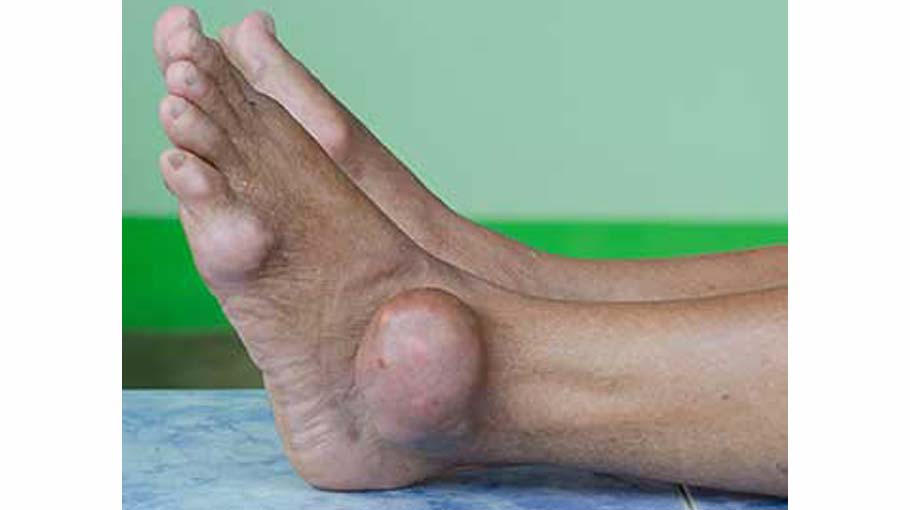Treatment for gout (part 6)

Gout medications are available in two types and focus on two different problems. The first type helps reduce the inflammation and pain associated with gout attacks. The second type works to prevent gout complications by lowering the amount of uric acid in your blood.
Which type of medication is right for you depends on the frequency and severity of your symptoms, along with any other health problems you may have.
Drugs used to treat gout flares and prevent future attacks include:
• Nonsteroidal anti-inflammatory drugs (NSAIDs): NSAIDs include over-the-counter options such as ibuprofen (Advil, Motrin IB, others) and naproxen sodium (Aleve), as well as more-powerful prescription NSAIDs such as indomethacin (Indocin, Tivorbex) or celecoxib (Celebrex). NSAIDs carry risks of stomach pain, bleeding and ulcers.
• Colchicine: Your doctor may recommend colchicine (Colcrys, Gloperba, Mitigare), an anti-inflammatory drug that effectively reduces gout pain. The drug's effectiveness may be offset, however, by side effects such as nausea, vomiting and diarrhea.
• Corticosteroids: Corticosteroid medications, such as prednisone, may control gout inflammation and pain. Corticosteroids may be in pill form, or they can be injected into your joint. Side effects of corticosteroids may include mood changes, increased blood sugar levels and elevated blood pressure.
Courtesy: Mayo Clinic




